Megan Mosby
Executive Director
Stay active, say alert, help wildlife
Over time, I have extolled the values of volunteering, especially at Liberty Wildlife. The benefits have included many different things depending, for instance, on the person’s age, experience, values, physical conditions. A study just sent to me by one of our volunteers, Craig, highlights another area of beneficial results…protection against cognitive decline and dementia.
It is pretty hard today to open a magazine, online news report, or documentary and not read or hear something about staving off a decline in cognitive functioning as we age…and aging is the goal, as the alternative isn’t good.
We take supplements. We get more rest. We get regular exercise. We stop all of our old bad habits. We spend time with family and friends. All of these efforts are good, but a bonus activity that takes some of the “self” out of it, is choosing to volunteer in an organization or program that has a mission that coincides with your values.
A study from UC Davis Health that was presented to the Alzheimer’s Association International Conference 2023 in Amsterdam concluded that “new data encourages individuals of all ages and backgrounds to engage in local volunteering—not only to benefit their communities, but potentially their own cognitive and brain health.” The key takeaways from the report indicate that volunteering could protect the brain from cognitive decline and dementia.
What I see at Liberty Wildlife is a great mix of all ages volunteering time to make life better for wildlife, nature, and the environment. There are so many levels of participation. We get a large number of young people who are starting their careers and are looking to learn more about potential employment, resume building and fulfilling interests. They are allowed to learn new skills that will help them through life either as a profession or a hobby.
For the empty nesters and retirees, it is often a different drive. Many are looking to follow a passion that didn’t bloom in the early years or got put off for a number of reasons…and all of the sudden they have both time and interest. These folks with great skills are a huge benefit to an organization like Liberty Wildlife. Those who have learned how to work with others, who have developed efficiencies in what they do, and have the work ethic needed to make it through raising a family and satisfying job needs, bring a great benefit to a non-profit.
We also see people who didn’t necessarily choose the life path that would last a lifetime. All of the sudden there is free time to pursue another passion. Helping wildlife or helping those helping nature and the wild world while it might not have been the educational path chosen can be experimented with in a volunteer position which provides the needed training, the hands on experience and the thrills of a life time…dementia be gone.
The other bonus is the camaraderie that comes from ‘hanging out’ with like-minded people while doing satisfying volunteer work. The study showed the power of staying engaged with people in the effort to stave off the loss of cognitive capacities. So, the win-win-win is that the individual is doing something that they find interesting; they are making friends and staying connected; they are helping a non-profit fill the gaps; and wildlife is the big winner.
Call a local non-profit that you support like Liberty Wildlife to see how you can help. Do it now and gain all of the benefits of that good deed. Your brain will thank you, the organization will thank you; your new friends will thank you and, maybe silently, wildlife will thank you, too.
This Week @ Liberty – August 1, 2023
It’s about this time of year I wonder why I moved here in the first place, and why I continue to stay. Having grown up a military brat, I have lived in all sorts of different climates, from the coldest (South Dakota) to the hottest (here); admittedly, Phoenix has been, and will continue to be, one of my favorites. It might partially be due to the fact that I moved here on my own in 2005, and that I have always found Phoenix to be a vastly different kind of pretty than say, Colorado Springs and the Garden of the Gods we frequented while there.
And yet, it’s not just that, either. There is so much life here, despite the temperatures attempt to force us out. We find a way—humans and animals alike—and it really is something to behold if you really look into it!
Turkey Vulture: A “Rare” Sight
If you believe you’ve never seen a Turkey Vulture before, I implore you to reconsider. These large, soaring birds range from Canada all the way down to South America, and can survive anywhere from deserts to tropical forests to open range lands. They’re easy to spot if you know what you’re looking for; they have dark feathers and a light, bare head, and in flight, their wings hold a slight V-shape and their feathers are two-toned (dark on the top, light gray on the bottom).
What’s most amazing about these birds is their job in our environment. They are nature’s clean-up crew, feasting on carrion (mostly dead mammals, from mice to cattle and anything in between); they scavange with their highly developed sense of smell and a their keen eyesight, and manage to conserve their energy in doing so by riding on thermals and lowering their body temperature at night (which is why you’ll see them sunbathing, to bring their temperature back up).
Now, while these birds are numbered in the hundreds of thousands, what we don’t often see here at Liberty Wildlife are hatchlings and nestlings. Their nesting sites can include rock outcrops, cliffs, or hollow logs, but since they breed only once a year (March to June) and only lay one to three eggs (with an incubation period of thirty to forty days), they’re not a young bird many see frequently. Plus, the chicks are born altricial (they hatch with their eyes closed and are incapable of moving), and don’t fledge for seventy to eighty days—which is quite a big difference from coopers hawks, who fledge in twenty-seven to thirty-five days.
Either way, Turkey Vultures are a sight to behold; they’re a fascinating bird to see, and learn about. When this weather cools off, I urge you to take some time to spot them out in the wild!
Photos by Susie Vaught
Baby Season: Still Going Strong
About this time of year, when the weather becomes excruciating and everyone is hoping for those cool temperatures again, we find ourselves wondering how they do it. Pigeons, mourning doves, and even greater roadrunners are still finding the time to mate, lay eggs, incubate and hatch young. Coupled with the monsoon season, we are finding baby season to still be in full swing.
Here’s whose come in the past few weeks:
A hatchling Night hawk (1 picture)
A lone Greater Roadrunner was found on a golf course and brought in by a rescuer (1 picture)
A nestling Coopers Hawk fledged too early in the heat (1 picture)
A Mourning Dove Nestling fell from the nest (1 picture)
Despite it all, we’re happy to give all these little guys a second chance at survival. Falling and/or fledging from the nest is a hard way to start life; even more so if one falls onto the hot concrete. Despite the busyness this season brings, we appreciate everyone looking out for our wildlife here in Arizona, and taking the time to drive them, or call on, our urban friends who need help.
A Quite Moment: Closed in August
The first half of the year has come and gone. August is upon us, which means we are closed for public hours for the entire month (our intake window is still open, of course! and yes, I know I mentioned this last time, too!). I don’t have to tell you it’s hot; we all know it, the birds know it, and even the reptiles who thrive in this weather know it.
But for us, it’s more than just giving our animal ambassadors a break from the education programs they’ll begin attending again in the fall and public hours a few times a week. It’s a moment for us here at Liberty Wildlife to reflect on what needs done for the upcoming season. That can mean cleaning up weeds around campus, or planting new trees or shaping the ones currently here. It can look like building new enclosures, fixing and repairing them, too; windows need cleaning, and small projects that get overlooked during our busy season can finally get put to rest.
There’s never a shortage of things to do here at Liberty Wildlife. The animals certainly keep us busy, but we do that to ourselves, too. Not just because we’re a glutton for ‘punishment’, but to ensure the animals in our care have the best possible life while staying here.
The month of August gives us that time to do that; to collect our thoughts and get ourselves ready for a different kind of busy in the fall.
Don’t worry, we’ll see you in September when we open for Public Hours again from 9am-11am!
Notable Mentions
As always, a friendly reminder that we are closed for the month of August (although I know it’s already been mentioned). We’ll pick back up in September with our same summer hours, and come October, we’ll look to see about switching back to our ‘normal’ hours.
Without further ado, here are this week’s notable mentions!
Nestling Night hawks enjoy a quick stroll and meal time in Orphan Care (2 pictures)
Our resident desert tortoises take a soak outside for a bit (1 picture)
New daily care volunteers learn how to clean out enclosures for upcoming drop offs (1 picture)
Animal Ambassador Austin (White-Tailed Hawk) sporting some Barbie pink zip ties (2 pictures – photos by Ceci)
The strong monsoon winds pushed over a tree in the California Condor enclosure (1 picture)
A raven is dropped off from Prescott with four bb’s below his jaw and a broken radius/ulna (2 pictures)
Thanks so much for making it here and continuing to keep up with us here at Liberty Wildlife! We appreciate everything you do, including reading what happens on the daily here at our facility!
Until next time!
Leave a Reply
Want to join the discussion?Feel free to contribute!
Leave a Reply
Posted by Acacia Parker
Public Outreach Coordinator



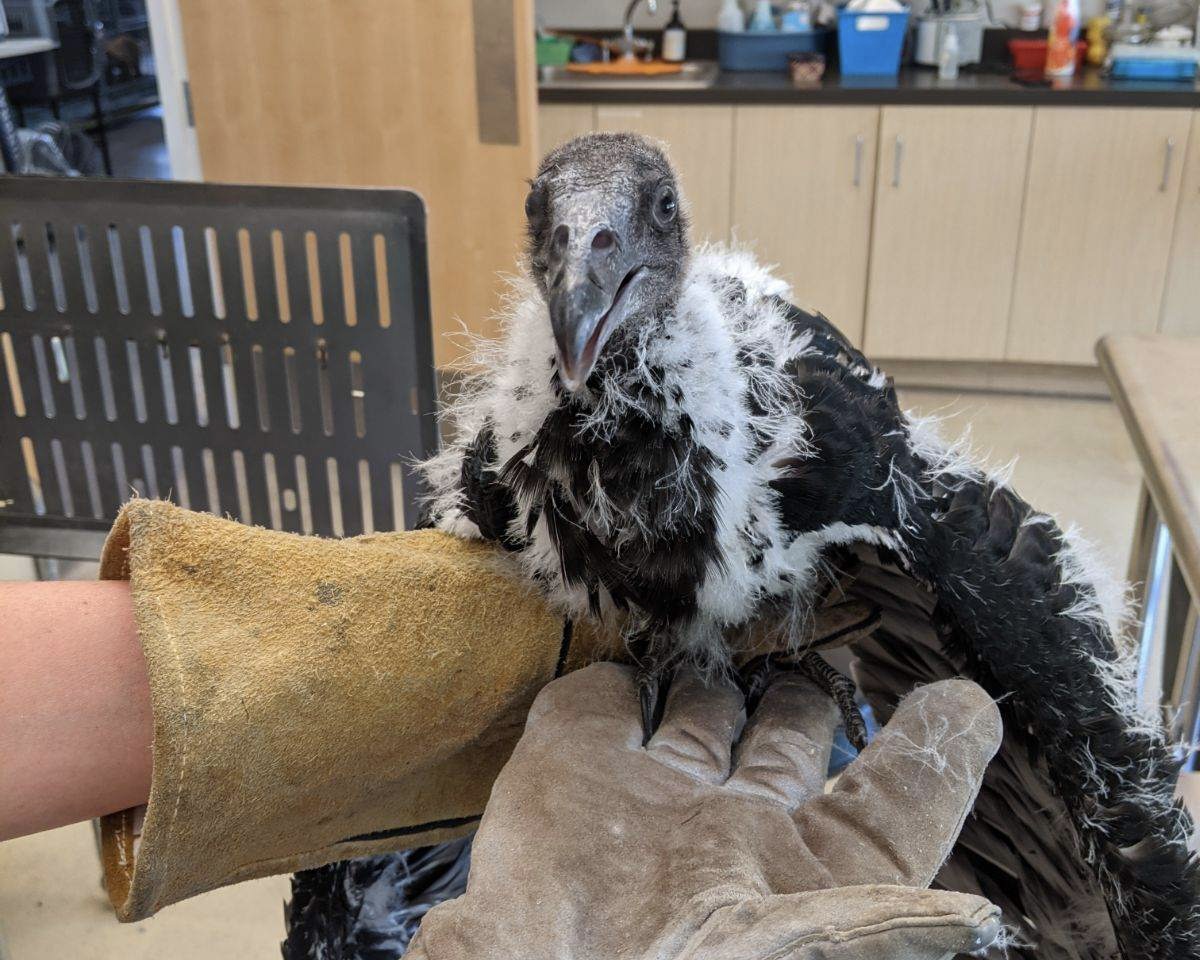
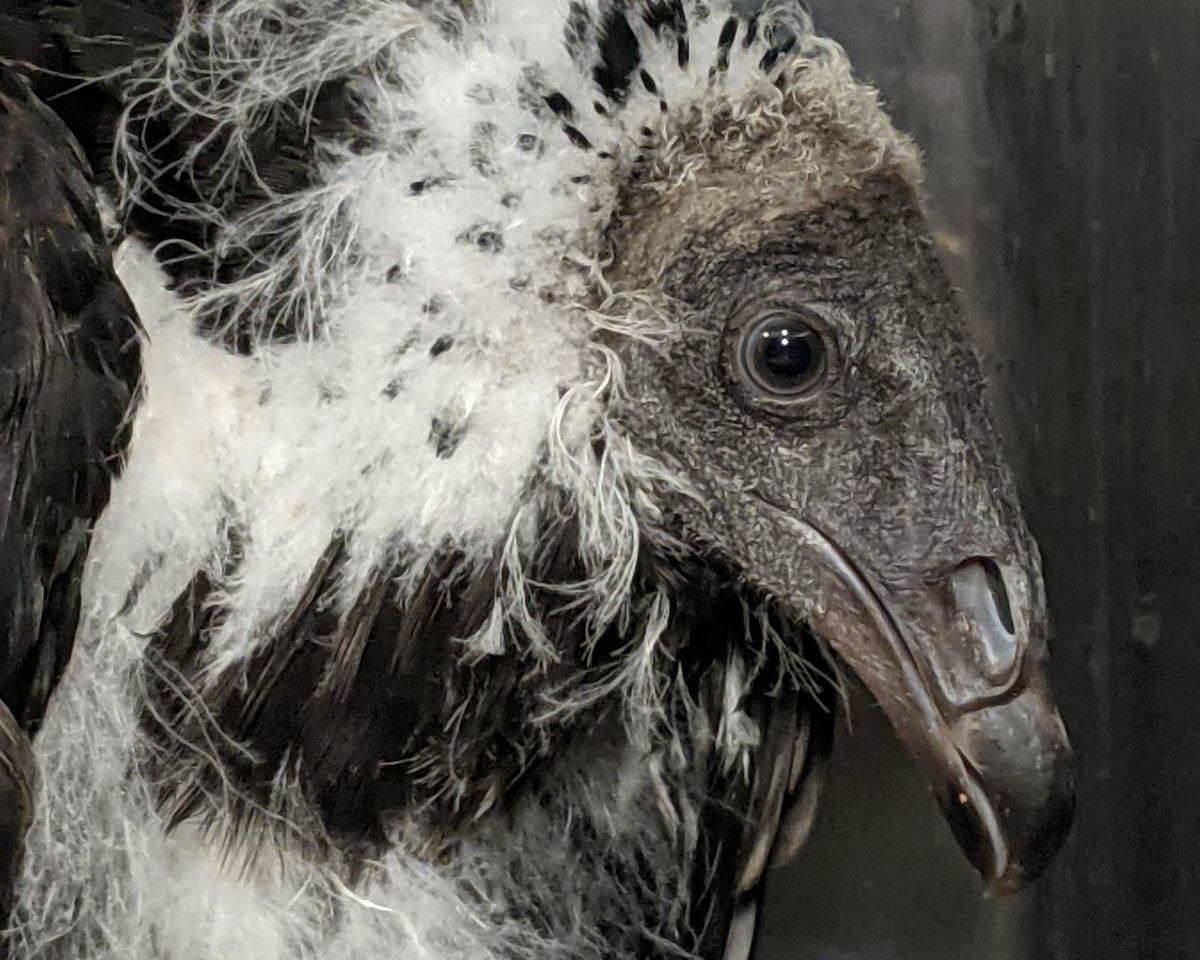
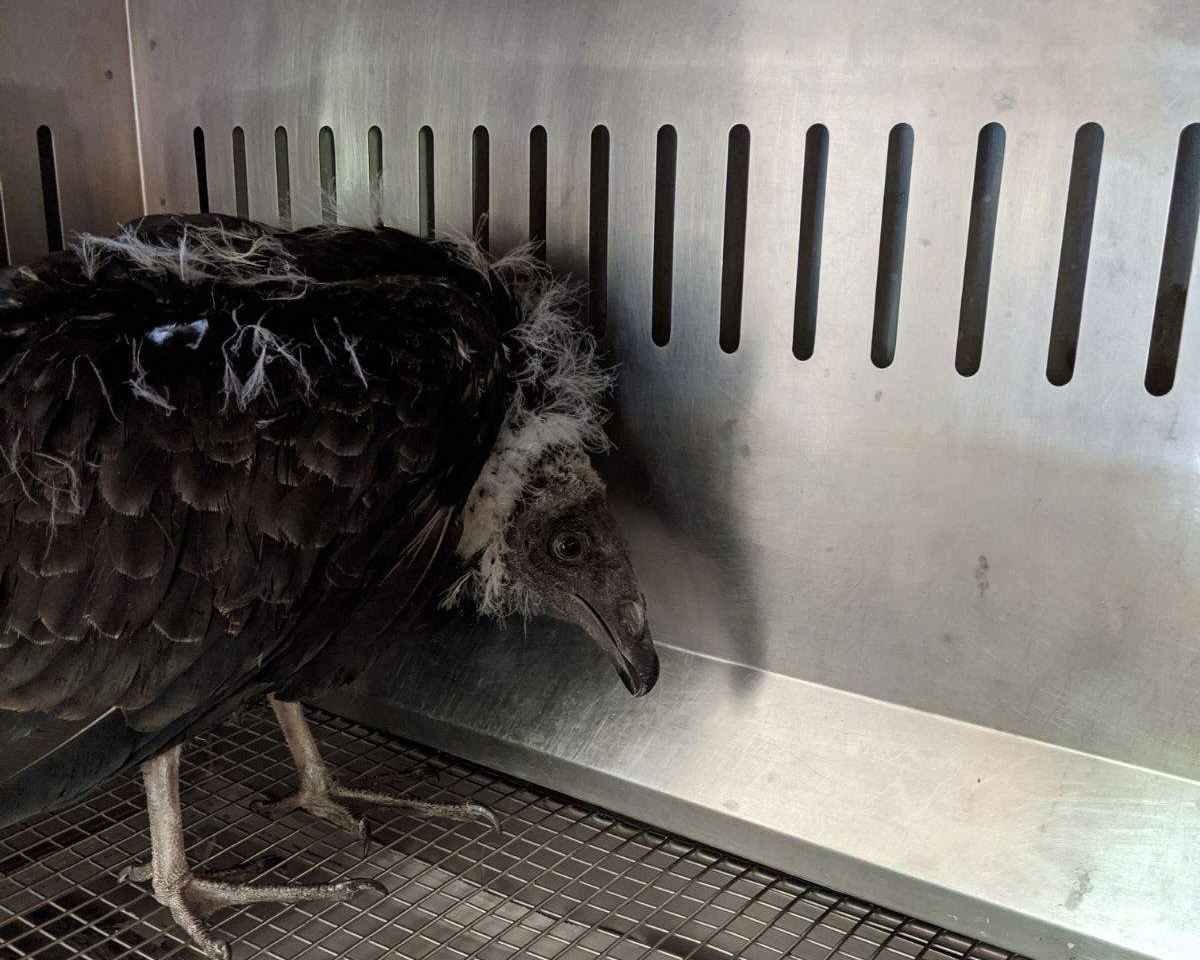
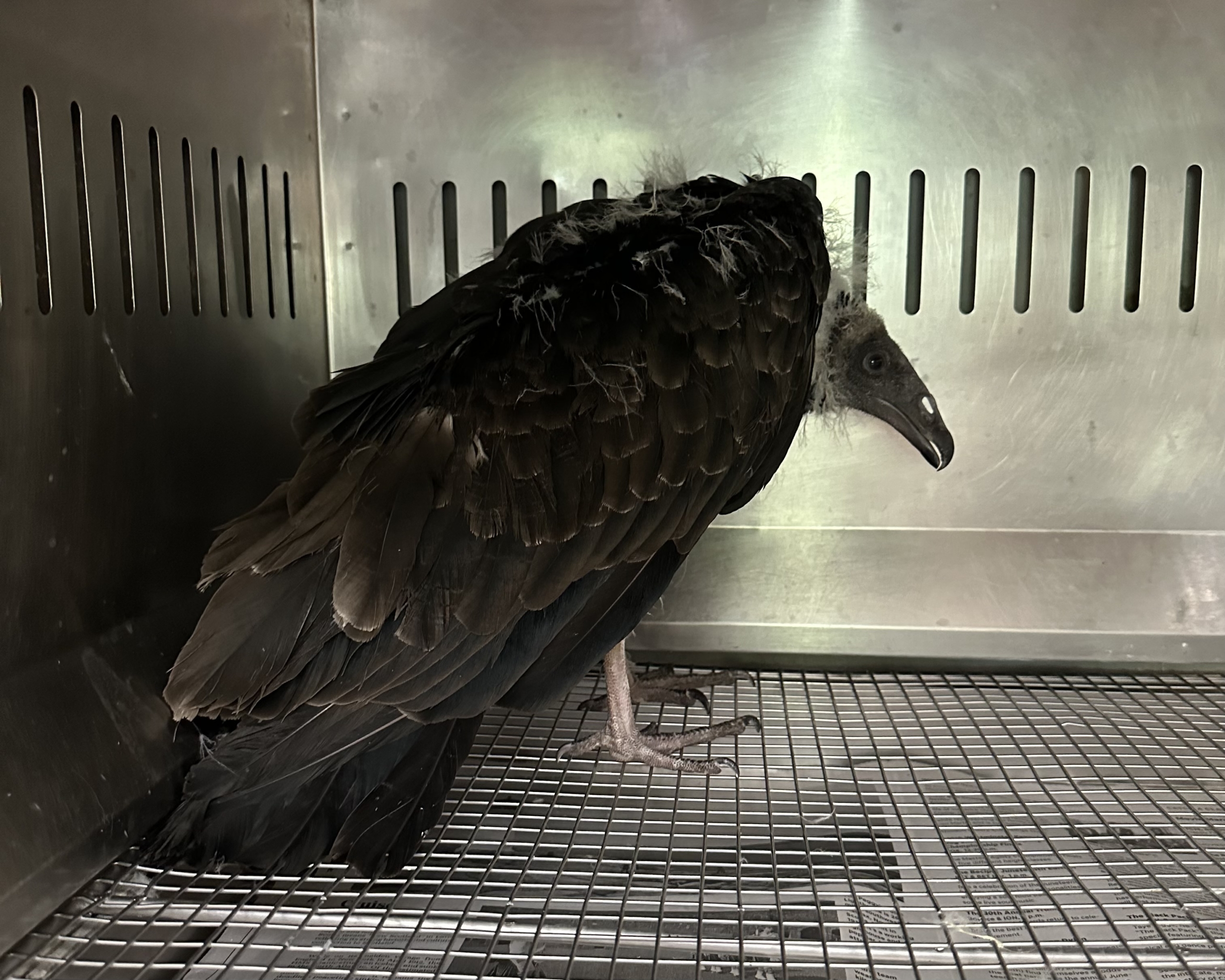
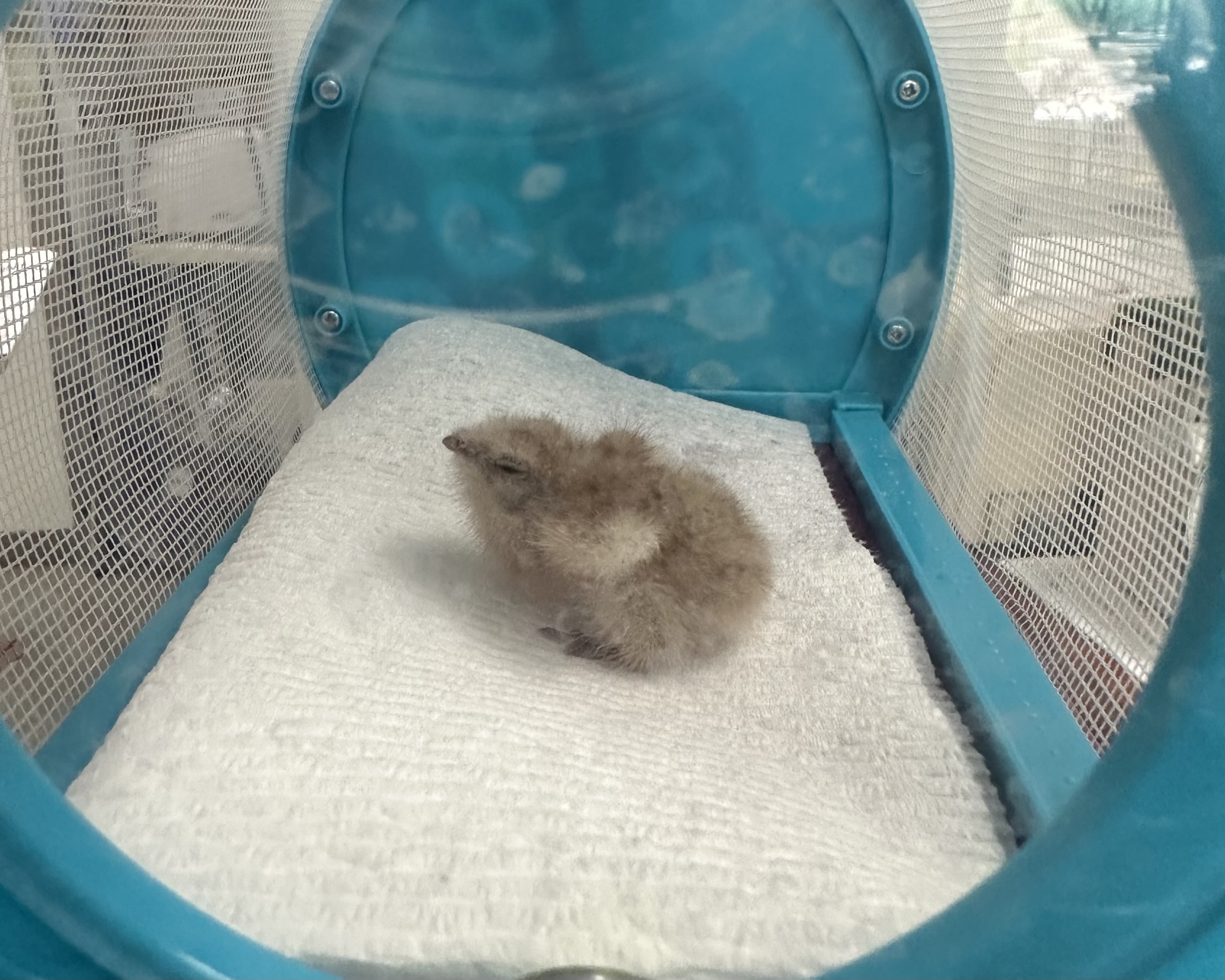
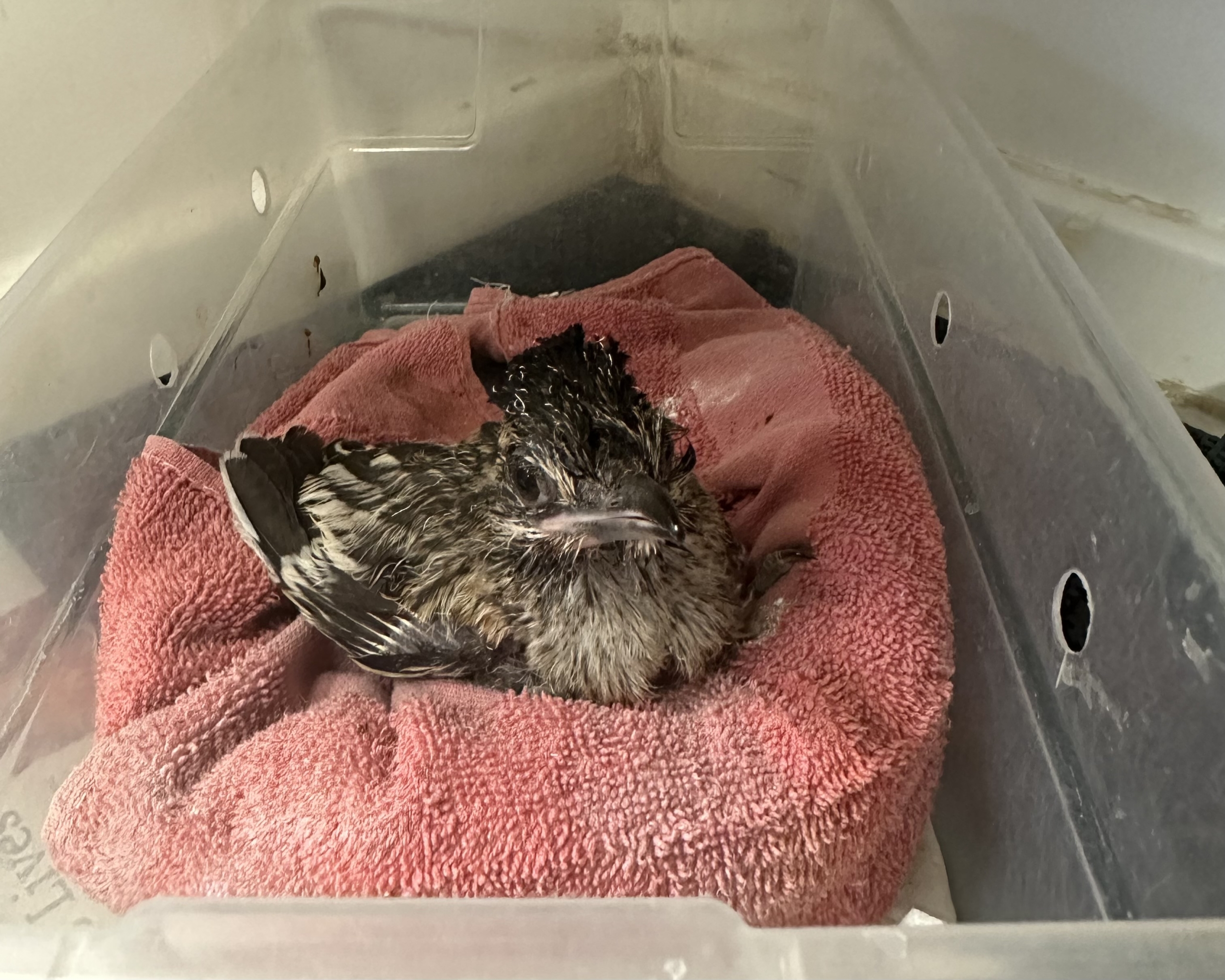
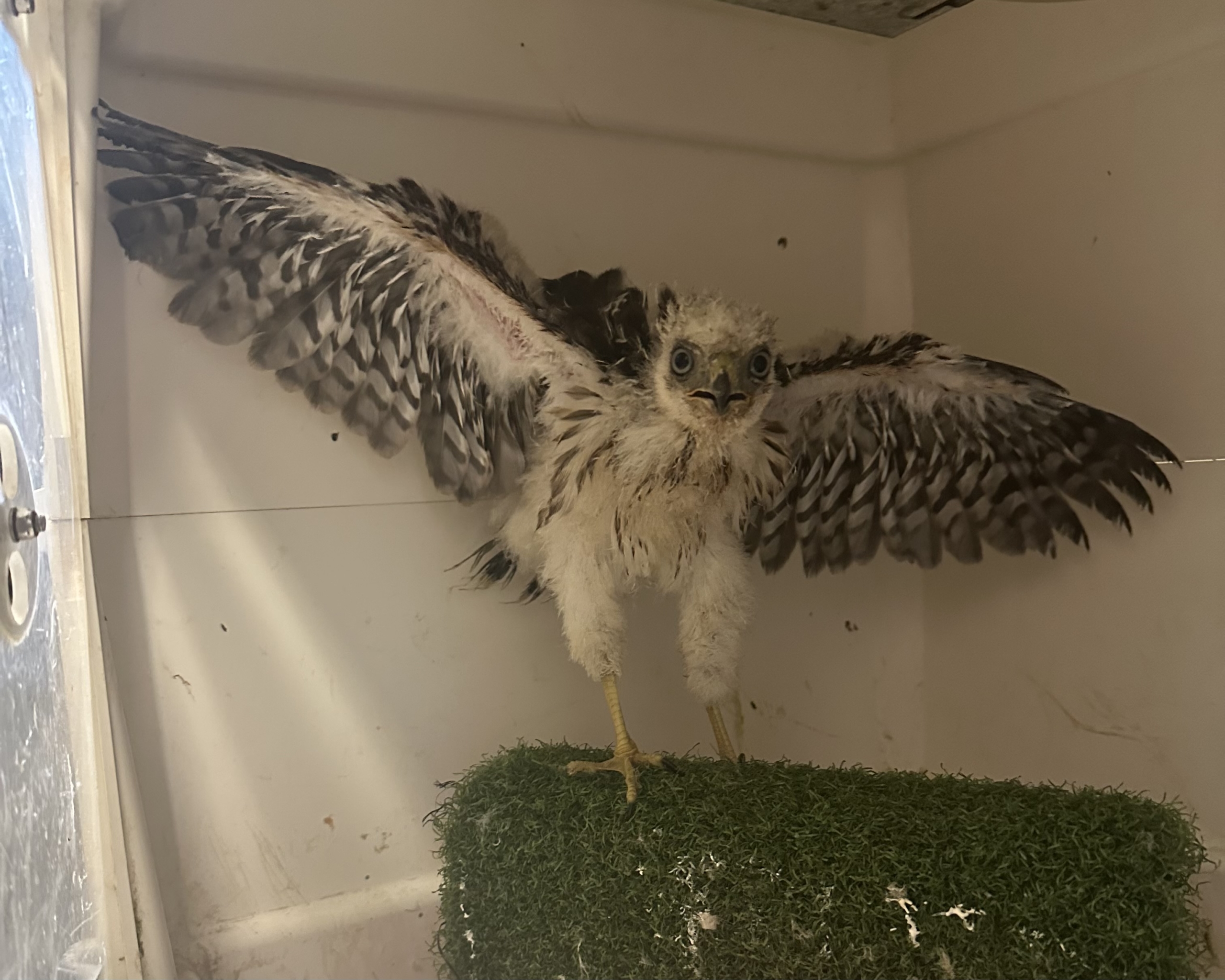
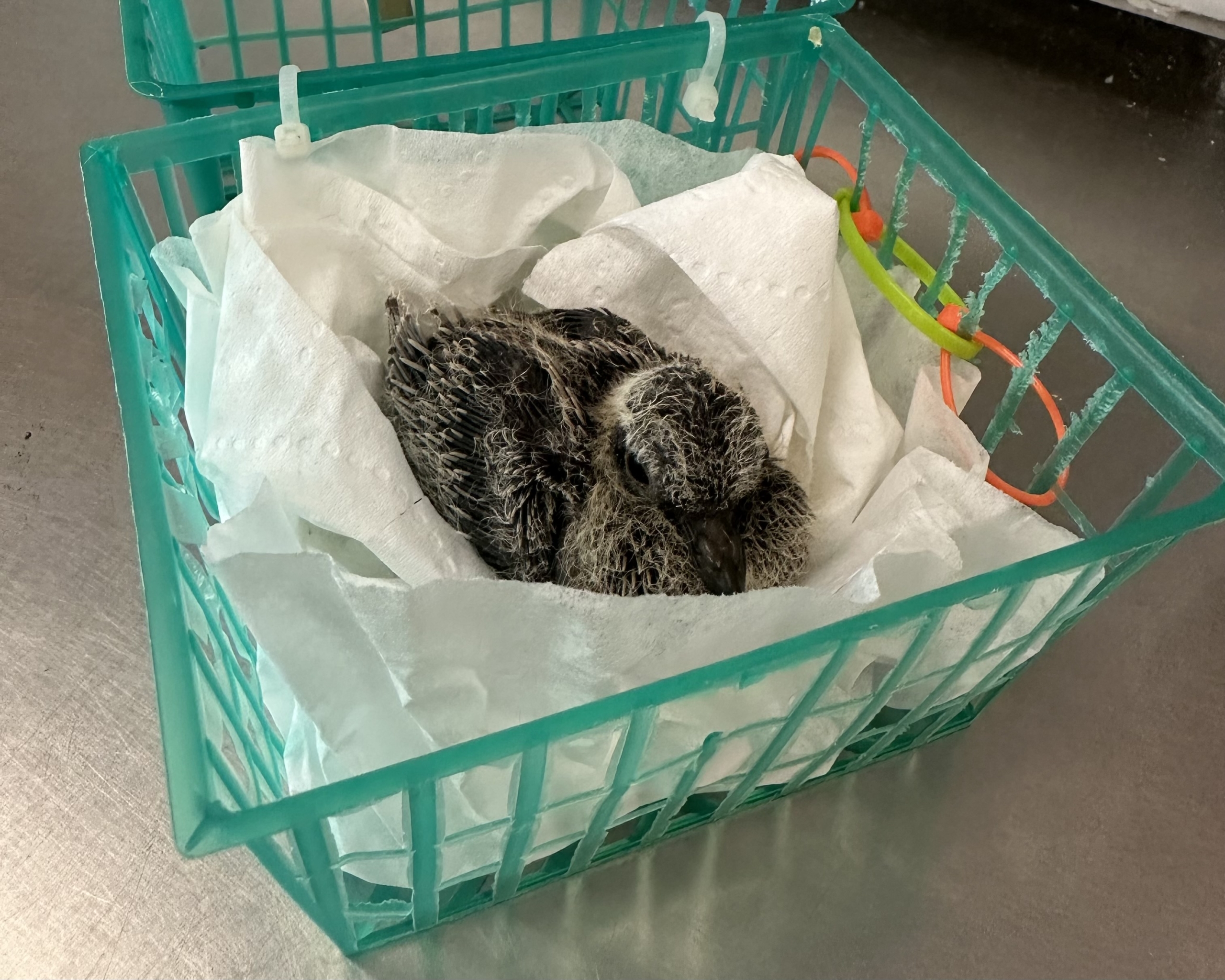
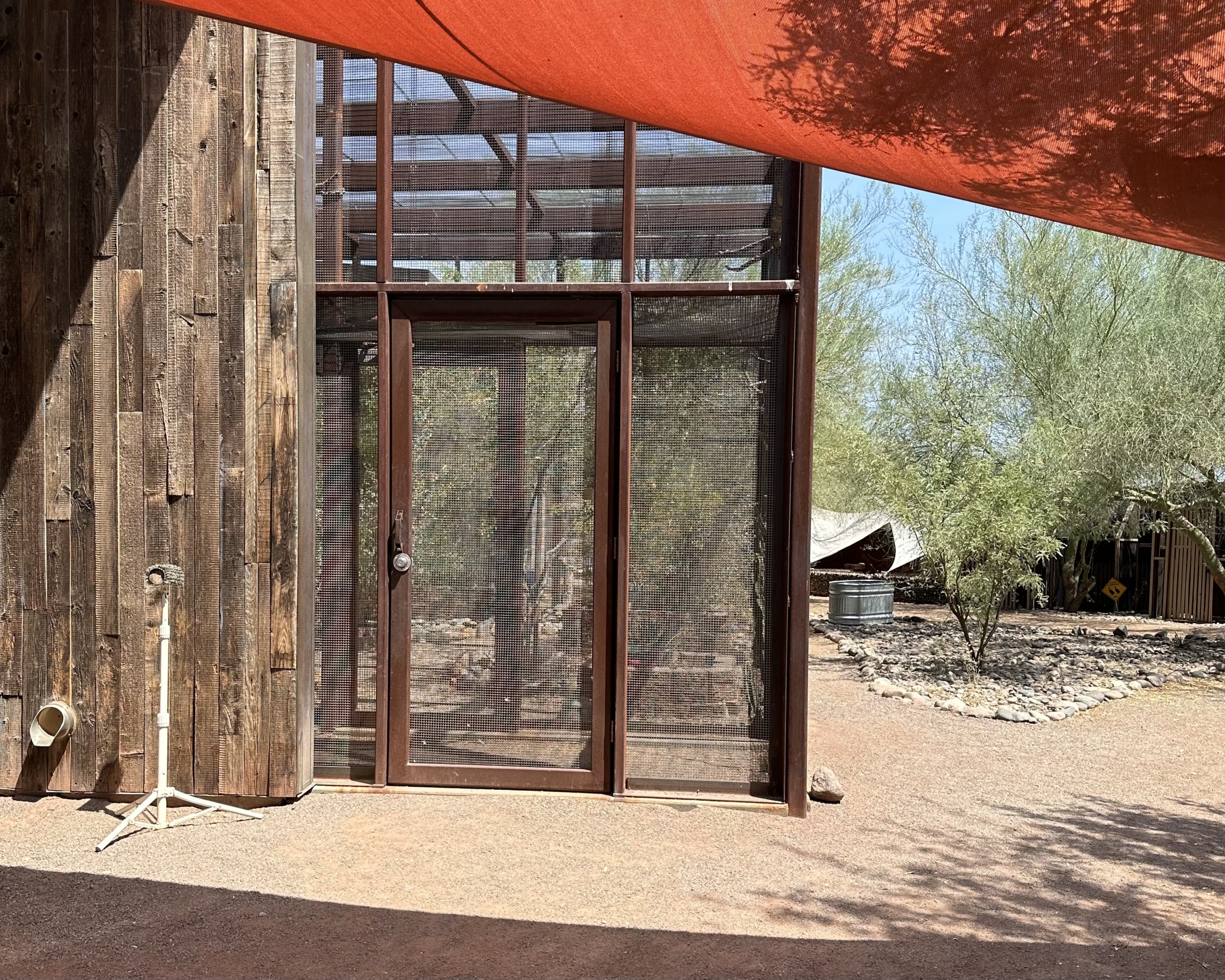
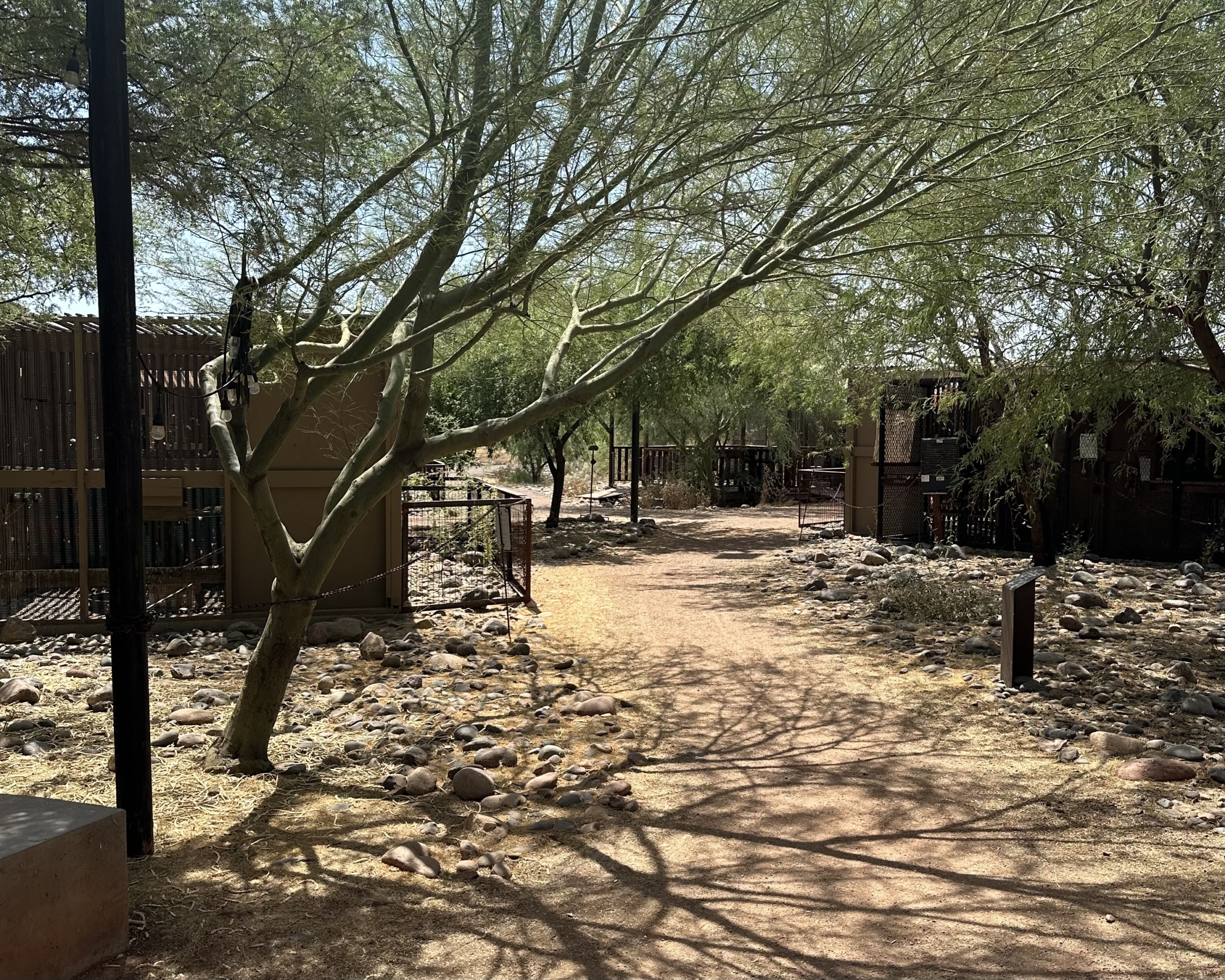
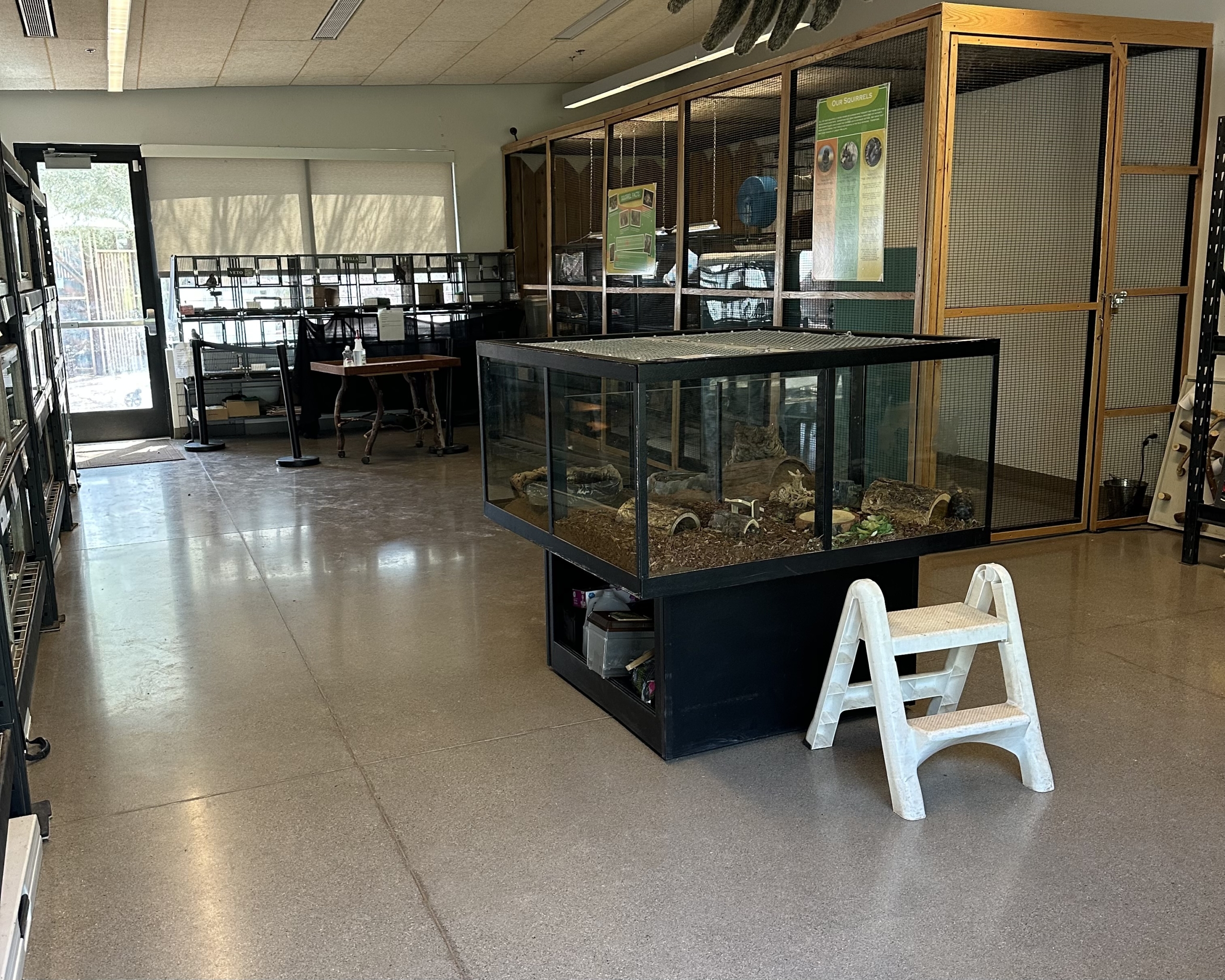
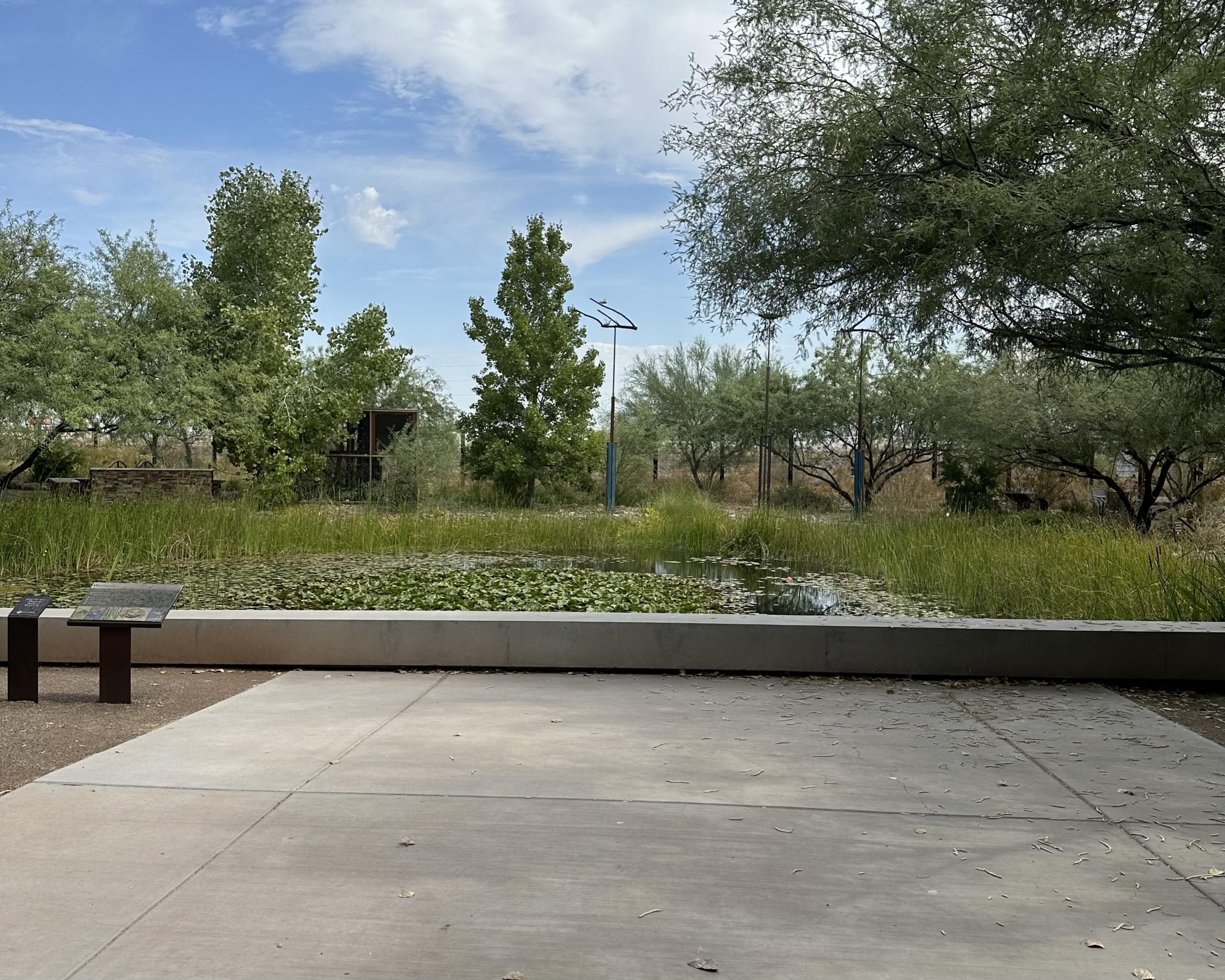
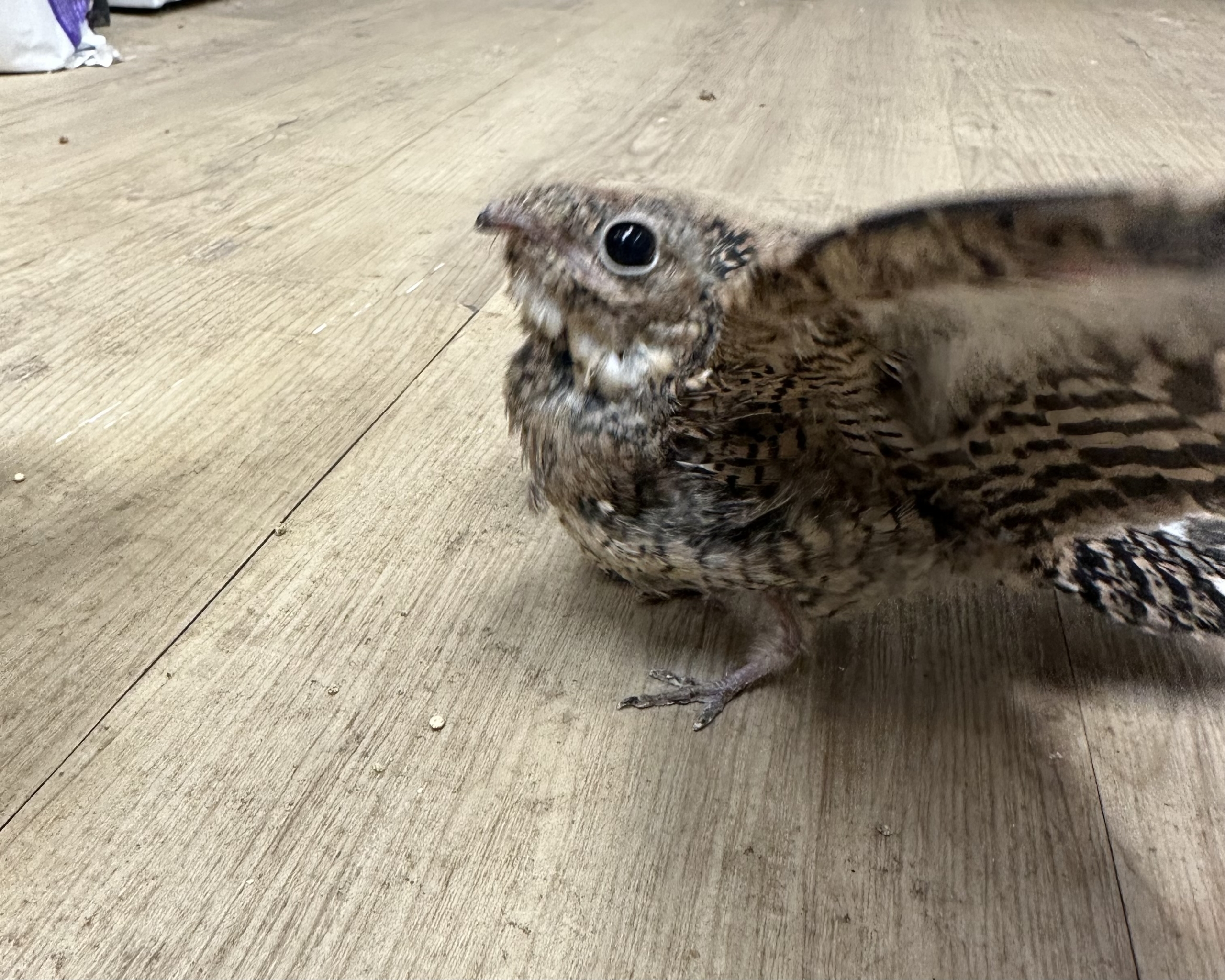
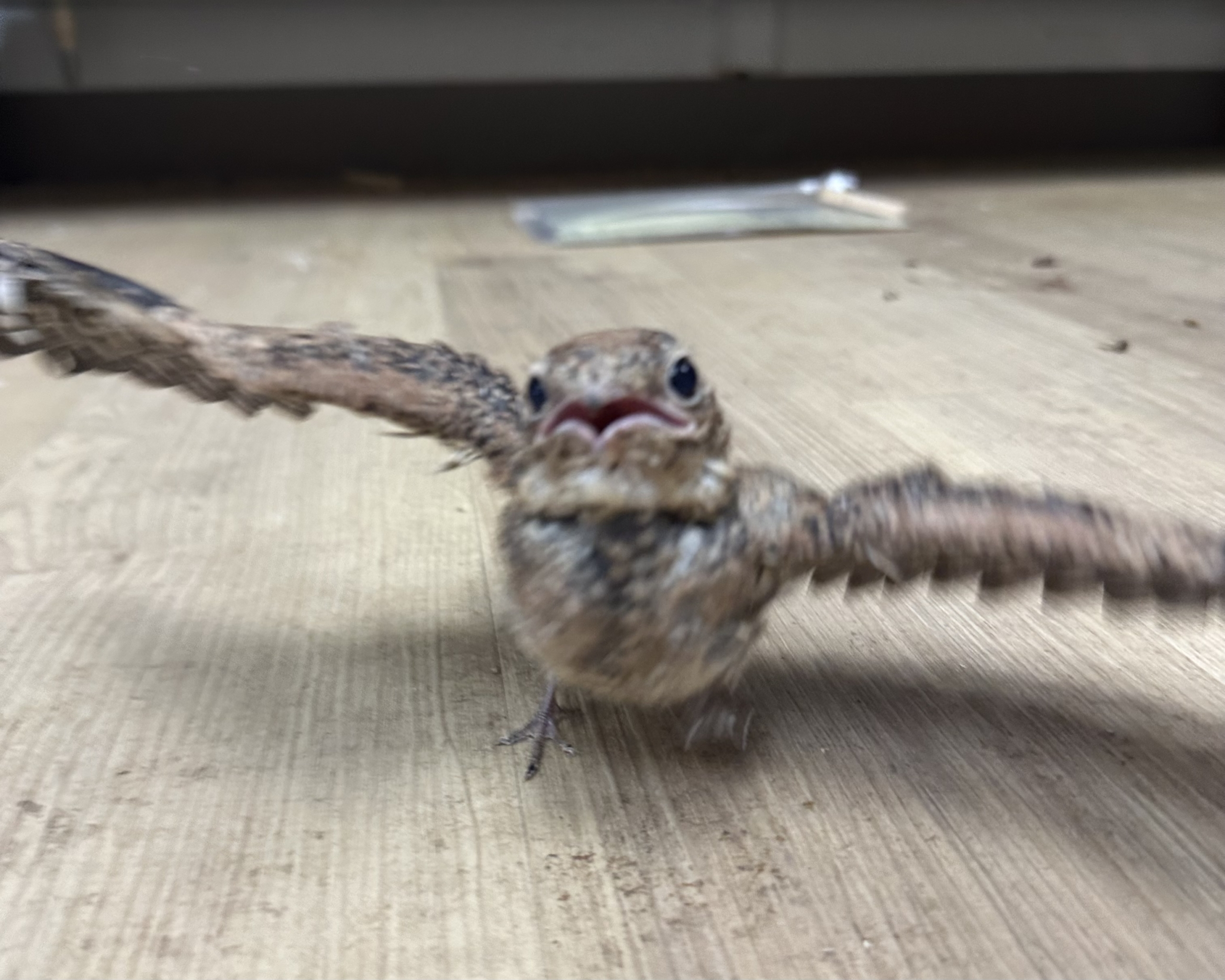
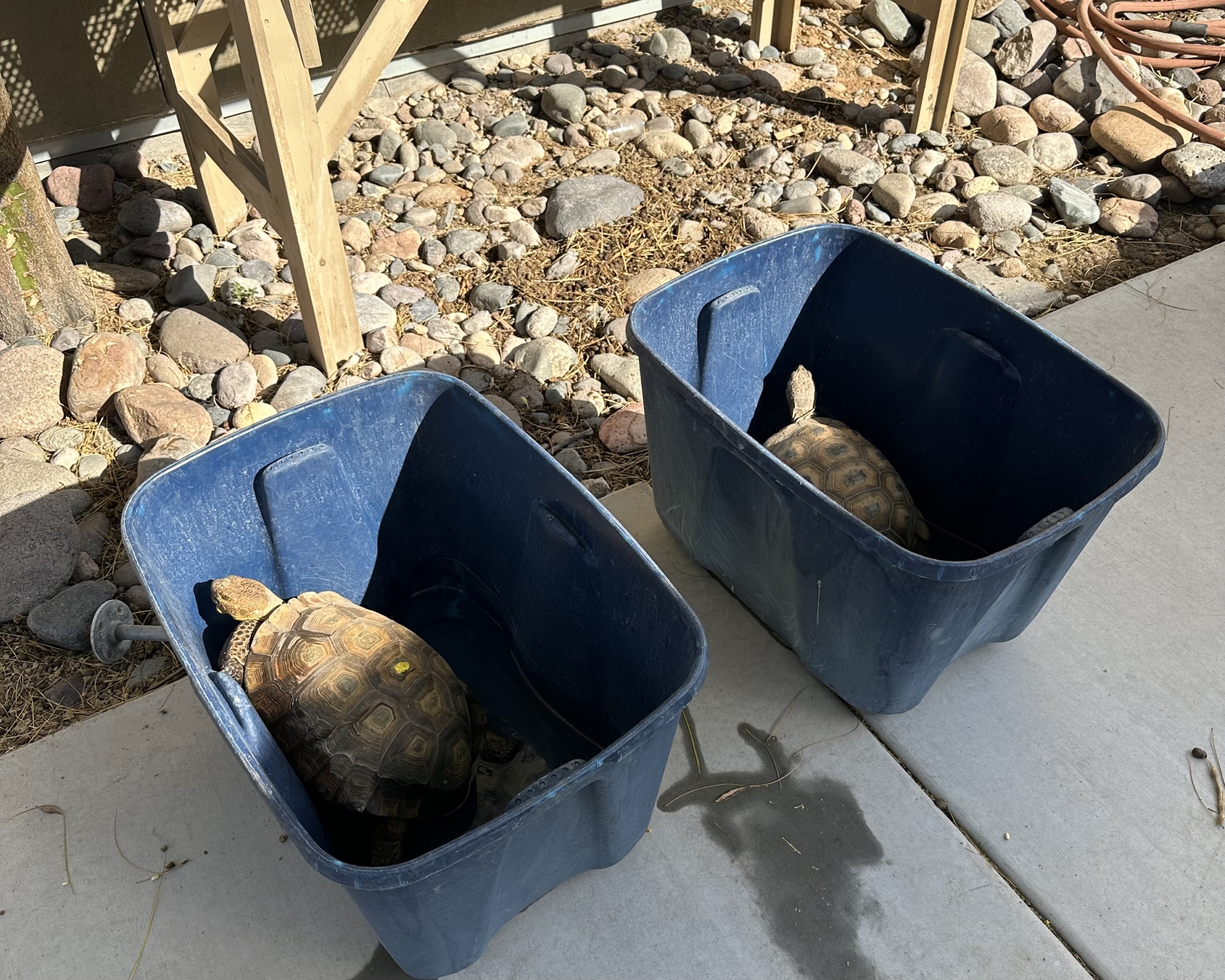
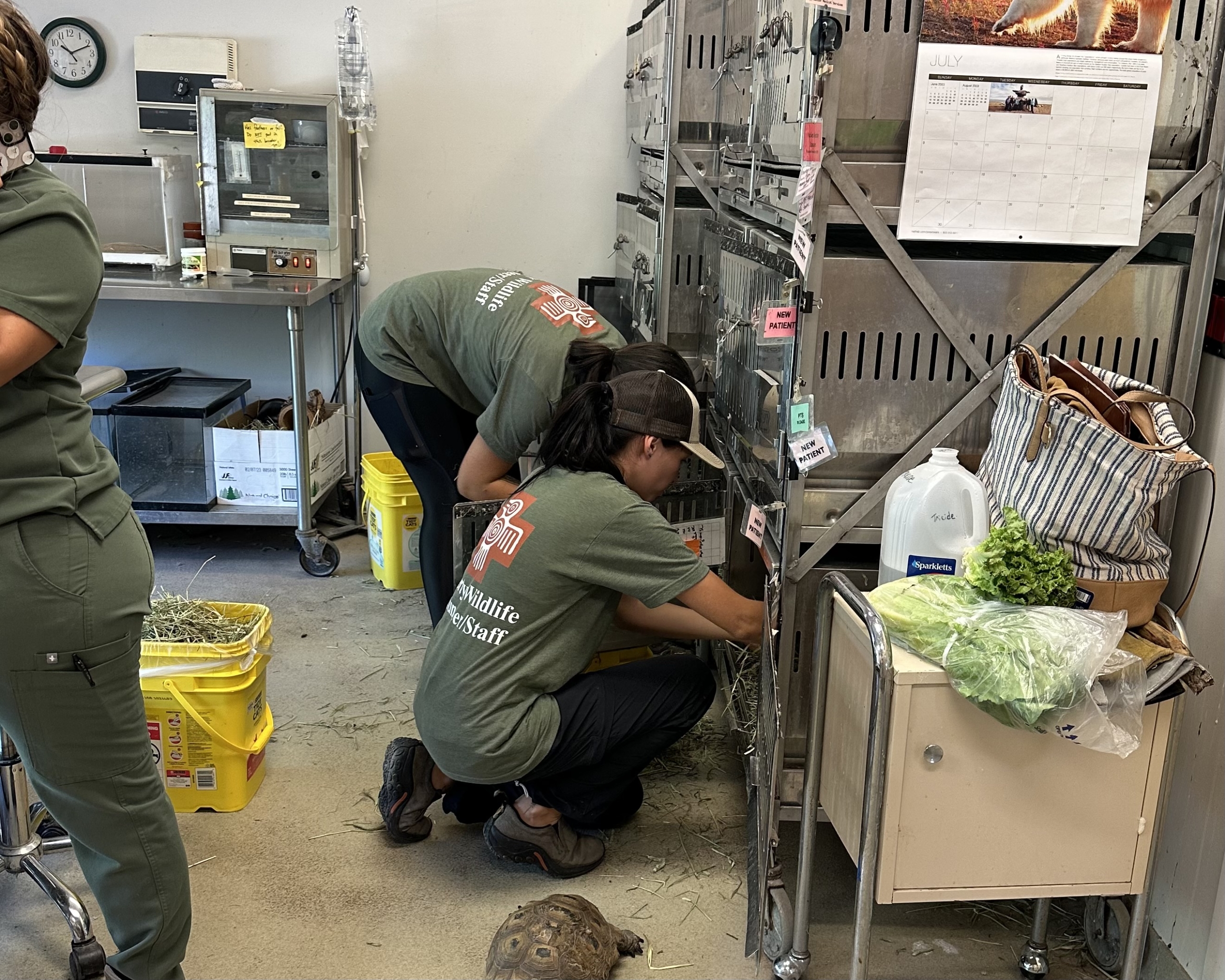
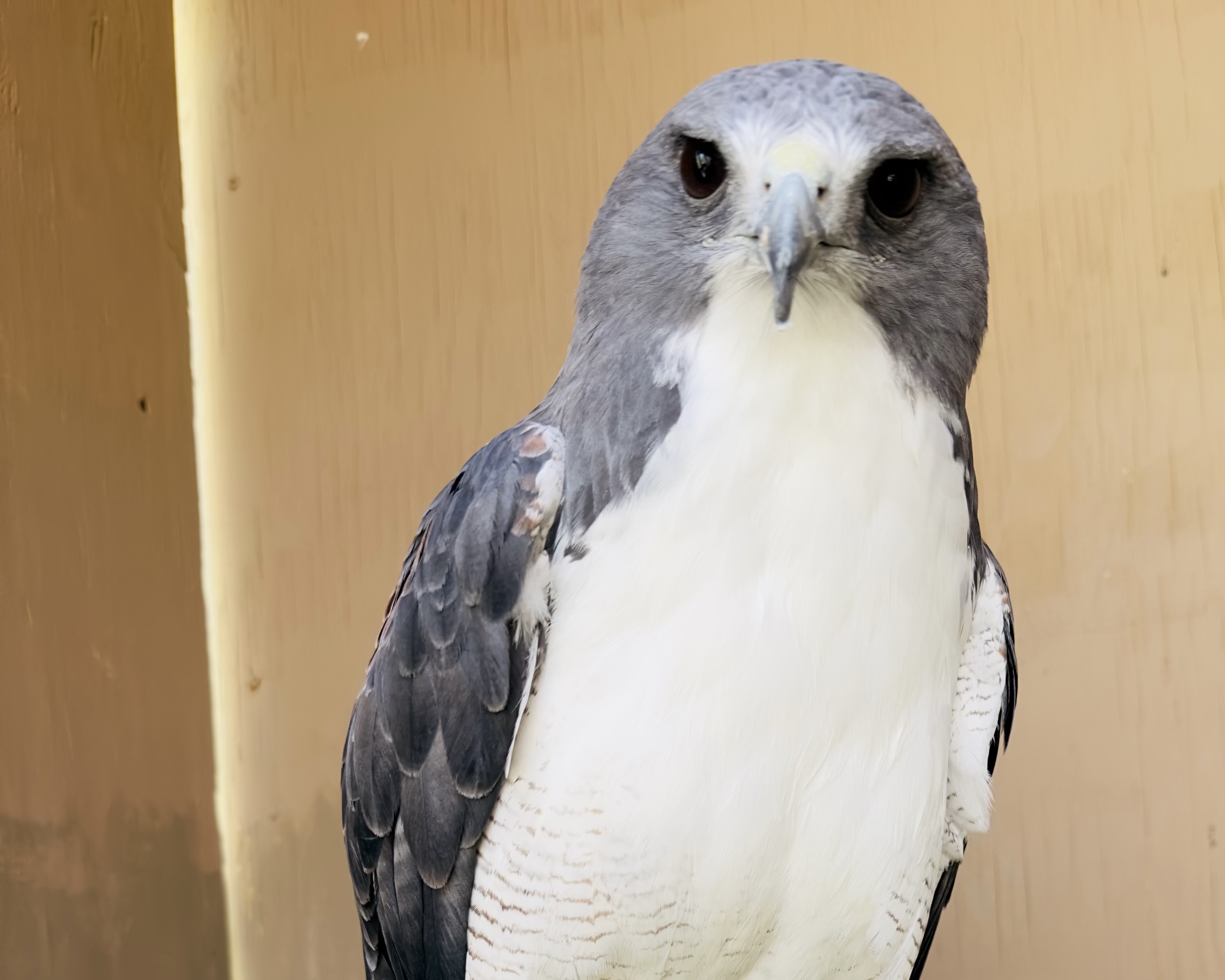
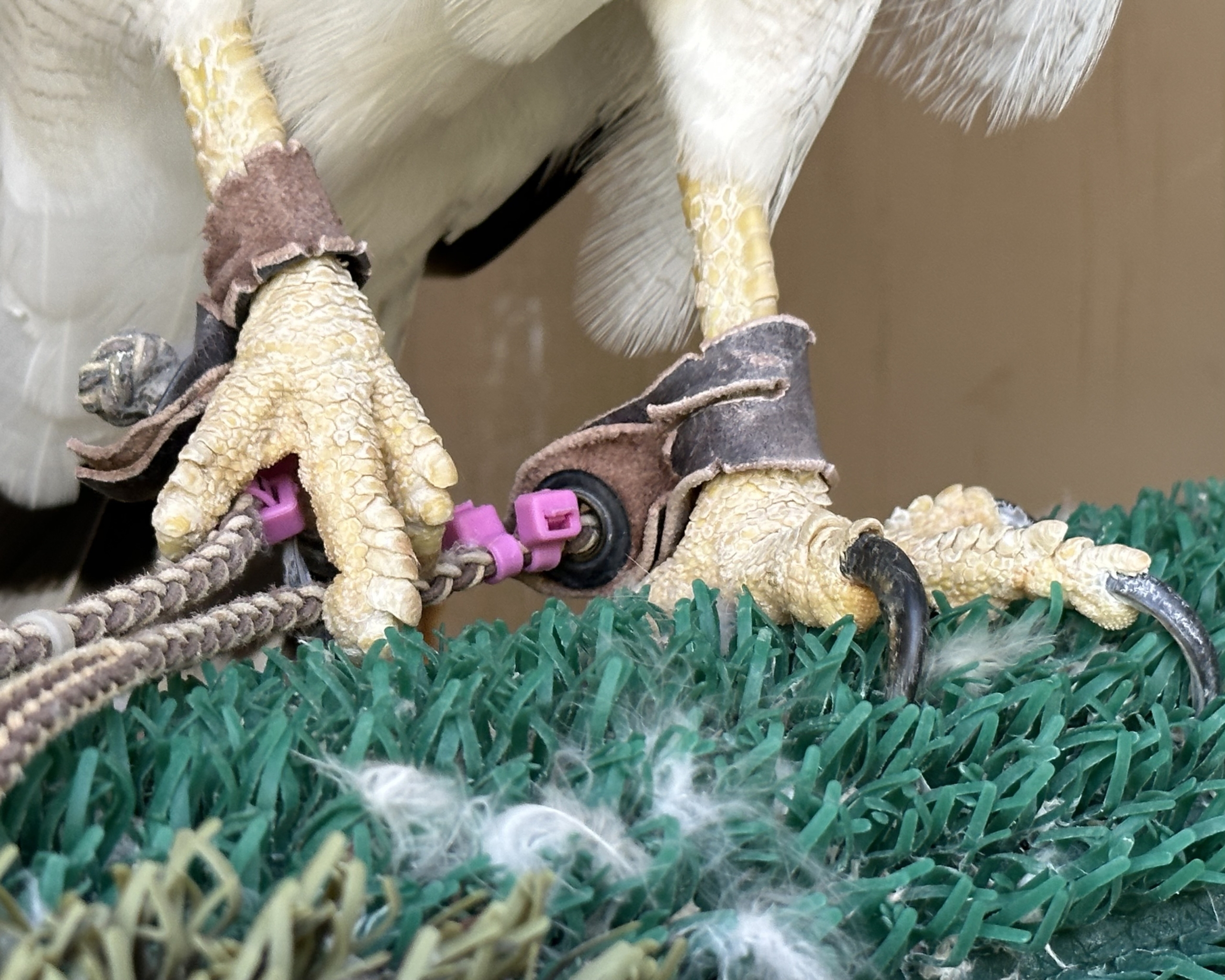
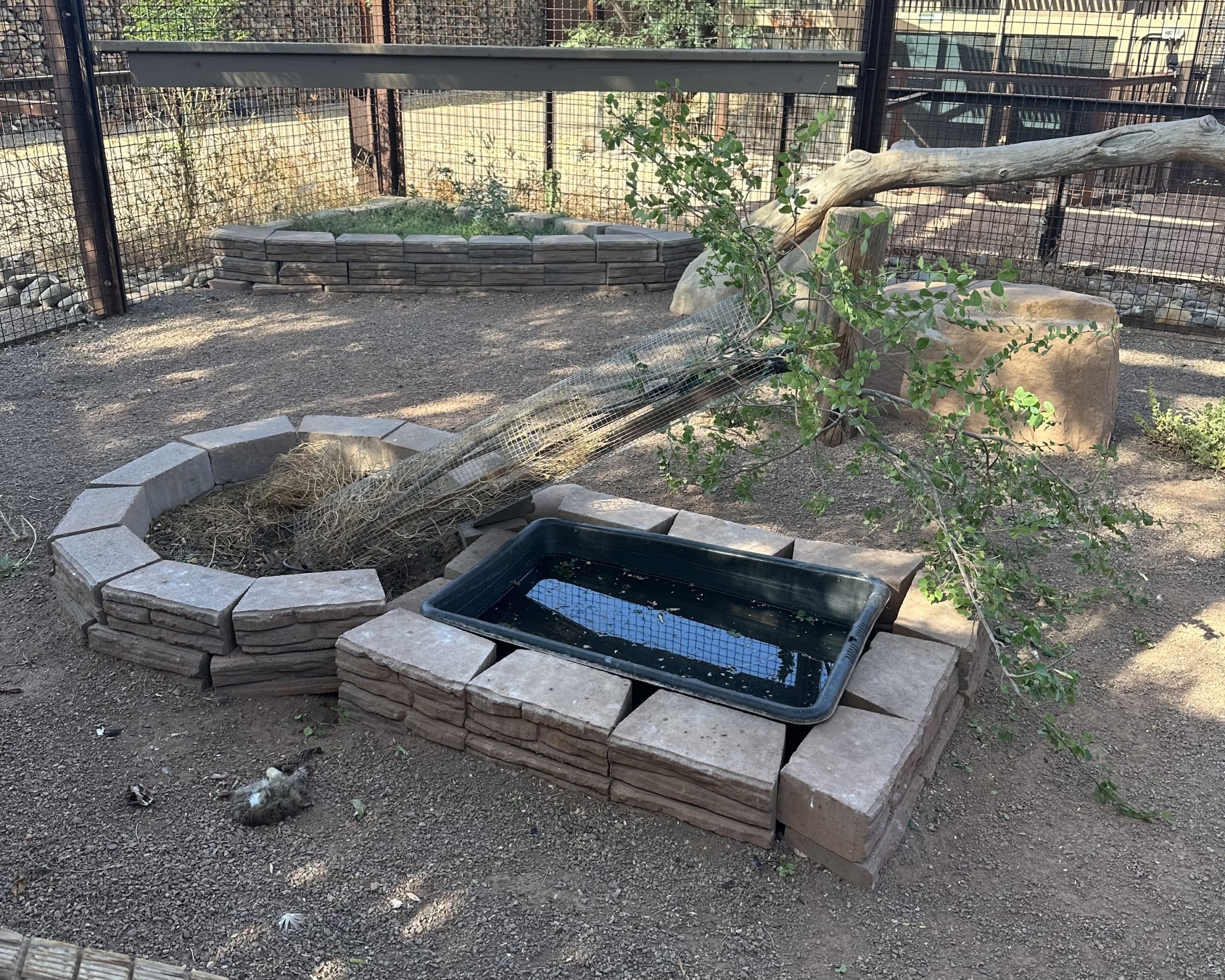
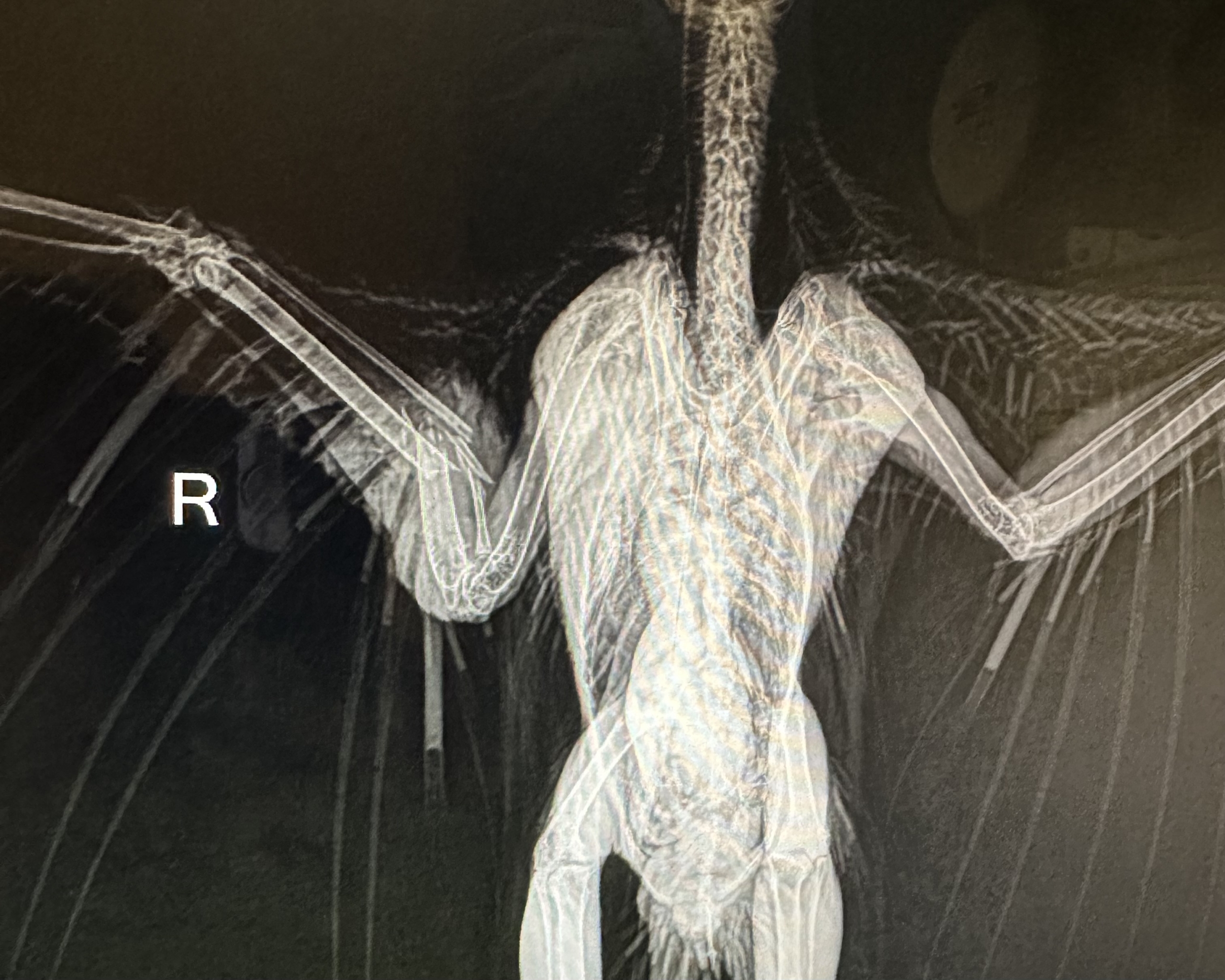
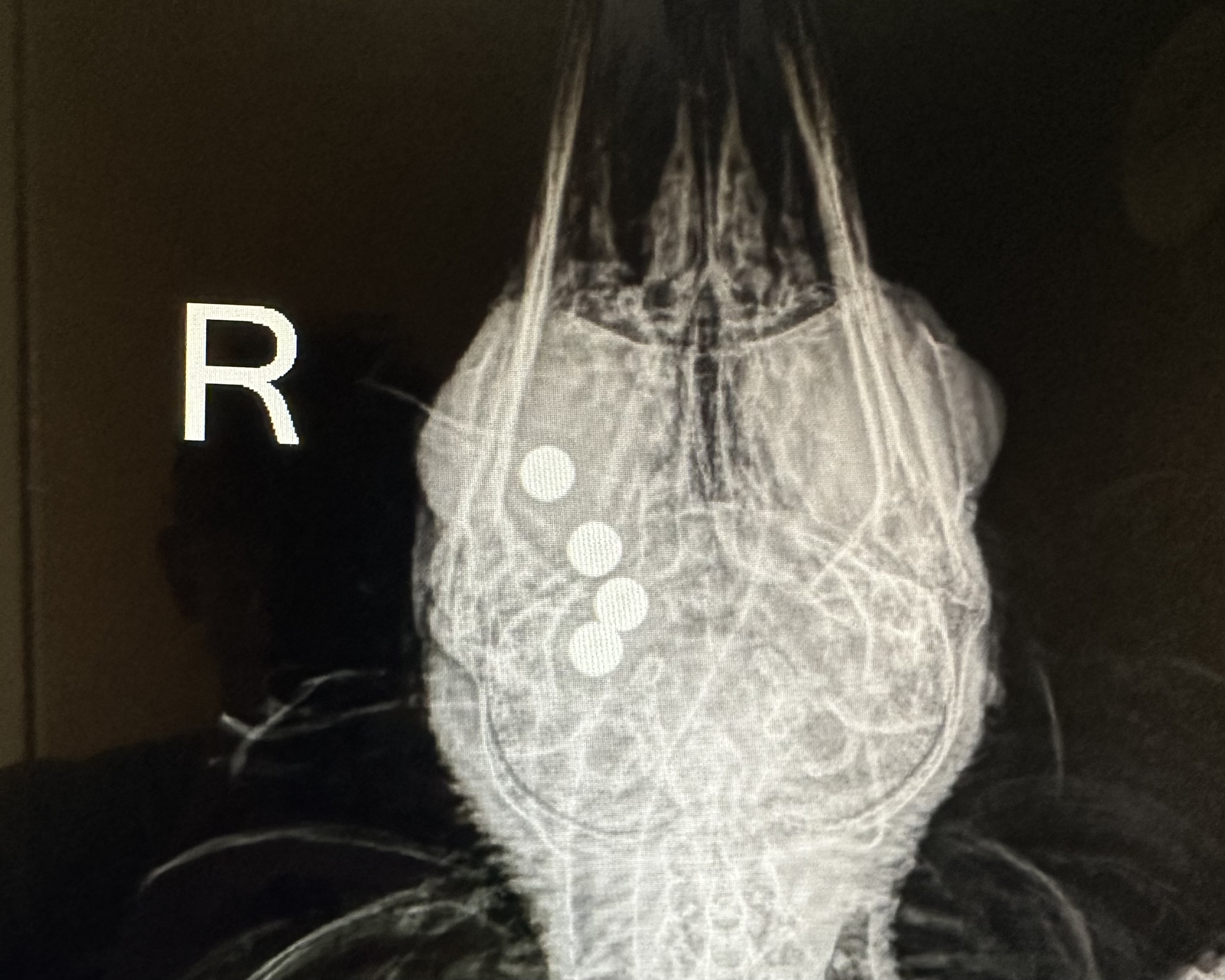
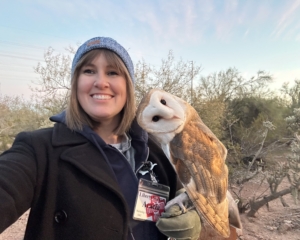
SO will the receiving window still be open during August? If not, where do we go with a sick or injured bird/animal?
Hi Pam! Our Intake Window is open every day (except for a few major holidays) from 8am-6pm. You can continue to bring in any sick or injured bird/animal right to the intake window.